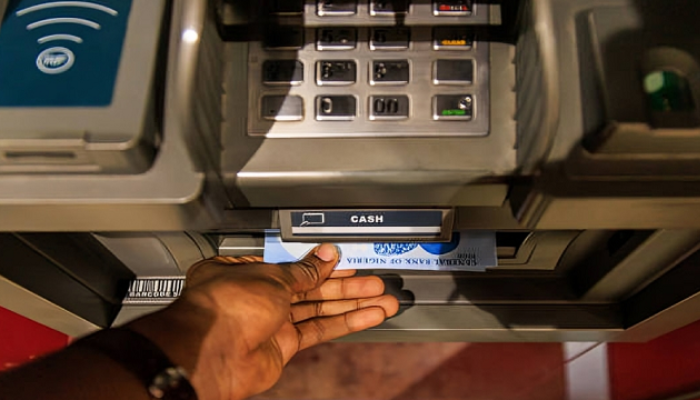The Central Bank of Nigeria (CBN) has announced an upward review of ATM transaction fees, effective from 1 March 2025. The policy, outlined in a circular signed by John Onojah, Acting Director of the Financial Policy and Regulation Department, seeks to address operational costs and improve banking efficiency.
Revised ATM charges
Withdrawals from a customer’s own bank’s ATM, known as on-us transactions, will remain free. However, customers will now incur a ₦100 per ₦20,000 withdrawal fee for transactions made at on-site ATMs within bank premises.
For withdrawals at ATMs of other banks, known as off-site or not-on-us transactions, customers will be charged ₦100 plus a surcharge of up to ₦450 per ₦20,000 withdrawal. The previous benefit of three free remote-on-us ATM withdrawals per month has been removed, meaning customers will now be charged for every transaction conducted at another bank’s ATM.
Read also: FG unveils ₦198bn loan fund for MSMEs, offers up to ₦100m per business
International ATM withdrawals
The CBN has introduced a new charge structure for international ATM withdrawals. Banks and financial institutions are now allowed to apply a “cost-recovery charge” equivalent to the exact fee imposed by the foreign financial institution. This means Nigerian customers withdrawing cash abroad will pay charges directly linked to the fees set by the foreign banks.
The directive aligns with Section 10.7 of the CBN Guide to Charges by Banks, Other Financial and Non-Bank Financial Institutions (2020).
Read also: 10 profitable businesses to start in Nigeria with minimal capital in 2025
CBN’s directive
The CBN has instructed all financial institutions to comply with the new fee structure before the implementation date. The apex bank states that the revised charges are necessary to sustain ATM services and improve banking efficiency.
With the removal of free withdrawals at other banks’ ATMs and the increase in charges, customers may need to reconsider their cash withdrawal habits. The directive also places more emphasis on digital transactions as an alternative to ATM withdrawals.










